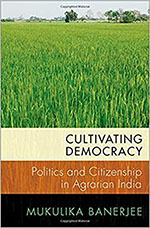The book under review presents a fascinating ethnographic study of the relationship between formal political institutions and the everyday experiences of the citizens of rural India. It presents a study of two villages in West Bengal, Madanpur and Chishti, and covers the period of fifteen years (from 1998 to 2013) to understand the changing dynamics of political life and the cultivation of active citizenship in both villages. Banerjee explores the reason behind the faith of common villagers, like the residents of Madanpur and Chishti, in the democratic processes, which they have been expressing through high voter turnout in consecutive elections. She asserts that an ordinary village is a crucial space to comprehend changes at the grassroots level because it gives us an opportunity to evaluate individuals’ actions, changing alliances of partnership, and the everyday constitution of democracy and citizenship. The book is a study of Indian democracy that also explores its credentials as a republic, which is not merely the absence of monarchy but the presence of an active citizen body that through vigorous participation in public affairs, safeguards the freedom and security of the individuals, and the republic as a whole (p. 4).
Indeed, West Bengal politics faced a huge change in the period of study (i.e., between 1998 to 2013) because the 34 years of rule of the Left Front ended after the 2011 Legislative Assembly elections, in which Mamta Banerjee-led Trinamool Congress (TMC) emerged victorious. The author argues that to understand the story of dramatic electoral changes, it is necessary to focus on both elections and ‘non-electoral temporalities that interleave it’ (p. 2).

